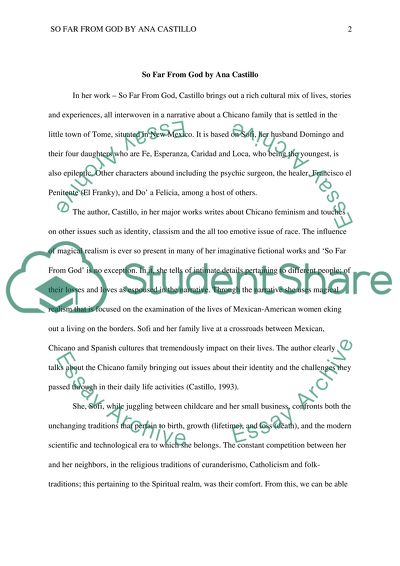Cite this document
(“So Far From God Book Report/Review Example | Topics and Well Written Essays - 1500 words”, n.d.)
So Far From God Book Report/Review Example | Topics and Well Written Essays - 1500 words. Retrieved from https://studentshare.org/history/1448773-so-far-from-god
So Far From God Book Report/Review Example | Topics and Well Written Essays - 1500 words. Retrieved from https://studentshare.org/history/1448773-so-far-from-god
(So Far From God Book Report/Review Example | Topics and Well Written Essays - 1500 Words)
So Far From God Book Report/Review Example | Topics and Well Written Essays - 1500 Words. https://studentshare.org/history/1448773-so-far-from-god.
So Far From God Book Report/Review Example | Topics and Well Written Essays - 1500 Words. https://studentshare.org/history/1448773-so-far-from-god.
“So Far From God Book Report/Review Example | Topics and Well Written Essays - 1500 Words”, n.d. https://studentshare.org/history/1448773-so-far-from-god.


